Last November, Jason and his partner Noah moved in together after dating long-distance for nearly a year. Both in their mid-20s, they had built a serious relationship by talking on the phone every day, visiting each other regularly and going on a summer vacation. They posted photos as a pair on social media to the point where people were surprised to learn they lived in different U.S. states — Jason* in Kansas and Noah* in Missouri.
Their relationship was also founded on another surprising principle: celibacy. Jason is an Eastern Orthodox Christian, and Noah went to an evangelical church. They both believed the Christian faith called them to abstain from sexual activity outside of marriage between a man and a woman. So they didn’t plan to have sex with each other or anyone else — ever. But taking sex out of the equation didn’t mean going it alone. “We see ourselves as partners in life,” Jason said last fall, “helping one another, encouraging one another.”
You may unsubscribe from any of our newsletters at any time.
Celibate gay Christians are an emerging group who are openly and unapologetically queer and also follow their churches’ teachings to abstain from LGBTQ2 sex. While the decision isn’t made lightly, it is controversial. Many LGBTQ2 Christians and others see this chaste lifestyle as a misinterpretation of the Bible or a condition of entry to conservative churches. Some churches, on the other hand, applaud their abstinence but disapprove of their gay pride. As a result, celibate queer Christians find themselves on the fringes of both the church and the LGBTQ2 community, facing mistrust, criticism and exclusion from the very groups to which they aspire to belong.
More on Broadview: Celeb megachurches need to clarify LGBTQ acceptance: pastor
Christians who affirm sexual activity within same-gender relationships are dubbed “Side A,” while people who do not are known as “Side B.” These terms originated in conservative Christian circles in the late 1990s on a website called Bridges Across the Divide, a discussion forum created to bring together Christians who “disagree about moral issues surrounding homosexuality, bisexuality and gender variance.” Maggie Heineman, a gay rights advocate, founded the site alongside an “ex-gay” man. They were concerned the issue was ripping the church apart and wanted a safe space for respectful dialogue between both sides.
While the terms Side A and Side B are relatively new, celibacy as a priestly calling or a path to greater Christian devotion goes back at least as far as the Bible writers themselves. In the Christian tradition, Jesus is presumed to be single and celibate — as well as the perfect embodiment of devoting one’s life to God. The apostle Paul also saw celibacy as preferable to marriage. “The unmarried man is concerned about the work of the Lord, how he can please the Lord,” he wrote in 1 Corinthians. “But the married man is concerned about the affairs of this world, how he can please his wife, and his interests are divided.”
Many early Christian thinkers looked at Jesus’ example and read Paul’s words, and drew the conclusion that abstaining from sex led to a purer, more holy state. St. Anthony and Paul of Thebes renounced all comforts and pleasures in order to draw closer to God. St. Augustine of Hippo, who considered all sexual impulses to be sinful, played a large role in shaping chastity as a Christian ideal and heterosexual marriage as worthy only because it led to children. To this day, the Roman Catholic and Eastern Orthodox churches require their clergy to take a vow of chastity.
Linn Tonstad, an associate professor at Yale Divinity School specializing in queer and feminist theology, thinks celibacy is a “valid, beautiful” vocation to which very few people are called. But she rejects the notion of any church requiring abstinence of its members — regardless of their orientation. The New Testament writers didn’t understand sexual identity the same way we do, she says.
Still, she has noticed more discussion about celibacy in queer studies and theology circles. She understands its appeal to some gay Christians. “It has a large history,” she says. “It appears to be countercultural in a variety of ways. It sets itself up as something that is anti-consumption, anti-objectification, pro-relational — a lot of things that people are really interested in.”
Some churches and Christian organizations that once promoted conversion therapy (to “turn” people from gay to straight) have now shifted away from it, including Exodus International, an organization of “ex-gays” (Christians who claim to no longer be gay, lesbian or bisexual) that disbanded in 2013. But many remaining groups now encourage celibacy, such as the American Association of Christian Counselors.
Tonstad sees the shift from condemnation to celibacy as a defensive response to dwindling memberships. “Celibacy seems like the obvious compromise position,” she observes. “There’s nothing wrong with being gay — as long as you’re not gay in any meaningful sense of the word.”
It’s hard to know how many queer Christians have chosen celibacy, but they have become more vocal in recent years on social media. There’s a Facebook group for Side B Christians and a website called Spiritual Friendship, which is run by gay celibate Christian writers Wesley Hill and Ron Belgau. More than 400 LGBTQ2 Christians attended the first annual Revoice conference for Side B types in summer 2018 in St. Louis.
“I understand why they want to make the distinction that they do, between identity and practice, or between orientation and desire,” says Tonstad of celibate gay Christians. “Do I think there’s a warrant in the Christian tradition for making that kind of distinction and for making that distinction in the way that they do? Absolutely not.”
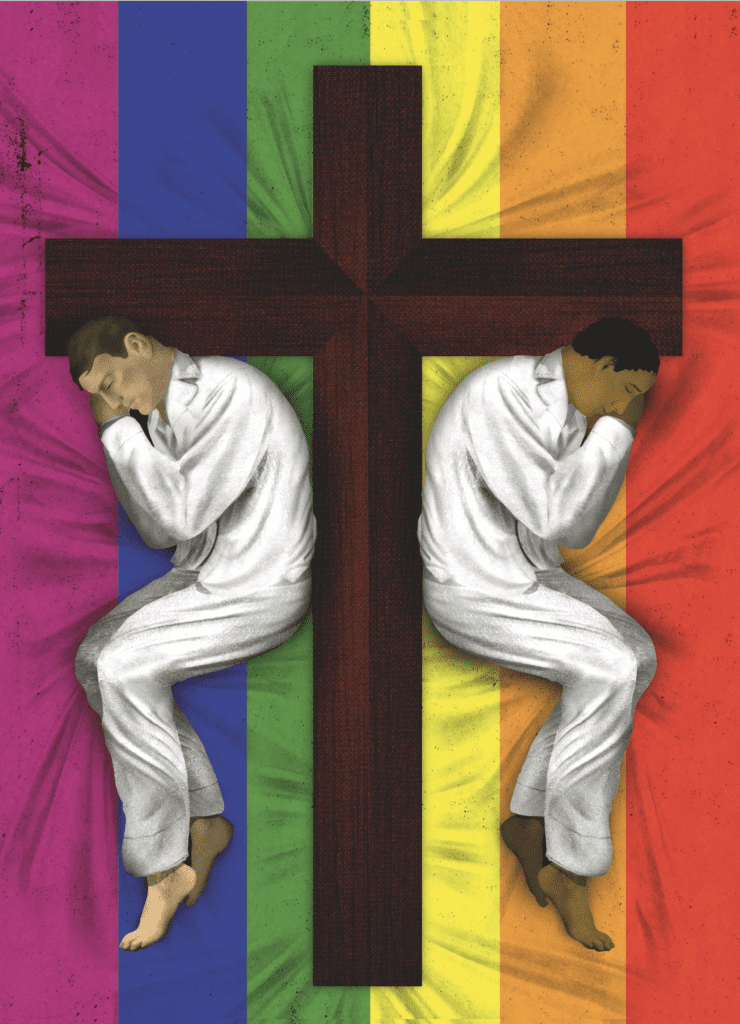
Jason grew up in a non-religious household and held progressive views on sexuality. He chose Catholicism at age 17, attracted to the church’s traditions and history, and influenced by friends who convinced him that Christianity wasn’t the hyper-conservative and fundamentalist religion he had assumed. “I didn’t have a lot of that same religious baggage in terms of sexuality,” he says.
When he came out as gay at 18, many of his friends were thrilled for him. But he had to figure out how to square his identity with his membership in the Roman Catholic Church, which still holds that homosexual acts are wrong. He eventually concluded that he trusted the church’s authority on the issue — being gay was okay but acting on desires was not. When he joined the Eastern Orthodox faith a few years ago, he accepted the same teachings.
Growing up, Jason wasn’t ever very interested in marriage, a sexual relationship or parenthood. But he was attracted to the Christian traditions of monasticism and celibacy. For Jason, celibacy meant more than just chastity, or a way to reconcile his faith with his sexual identity. “It’s delving deeply into commitment to one’s church and to be radically hospitable to the broader body of our siblings in faith.”
In choosing to be celibate, he also wanted his sexual orientation to be seen as something more than desire. “In the church especially, queer people are sexualized to a really intense degree,” he says. “To me, orientation is so much more deeply rooted in beauty, and the beauty that I’m oriented to. How is [my partner, Noah,] beautiful, not just physically, [but] spiritually, emotionally, intellectually? How do I want to orient my life to be in companionship with him?”
He and Noah met in an online group for Side B Christians. Intrigued by each other, they eventually fell in love. But Jason didn’t compare their partnership to a marriage or exclusive sexual relationship. Instead, they maintained boundaries — not doing anything that even had the “undertone of sexual” together. “I tell people, when it comes to [our] partnership, it’s amazing how sexual sins are a very low priority in terms of what we discuss, because most of our sins are a lot of anger, jealousy, being impatient with one another, not fully listening to one another, not being quick to forgive one another,” he says.
However, Jason recently had a change in perspective. In June, he wrote on his blog that he had been struggling to justify his commitment to celibacy. He couldn’t understand the harm if he and Noah expressed their love sexually within marriage. He now sees same-gender marriages as equal to opposite-gender ones — the proper context in which to have sex. He feels at peace, he writes, now that he is honest with himself and others, but he fears the possibility of losing the community that came with his Side B conviction. He maintains he will continue to defend celibate Christians against criticism.
Other celibate Christians also find it hard to understand why being faithful means giving up sex. However, they still choose the life of celibacy. Eve Tushnet, a 40-year-old Catholic lesbian who lives in Washington, D.C., struggles with her church’s stance on homosexuality. But she chose to be celibate after joining the church about 20 years ago. She grew up in a secular Jewish home, came out as a teenager and happily had sex with women until her conversion to Christianity.
At the start of her faith journey, she asked several people, including the priest who led her catechism class, why the church is against same-gender relationships. Tushnet was dissatisfied with the answers. “They basically ranged from beautiful but unpersuasive, to the thing that the priest said, which was really not helpful: ‘If you have two women and you’re having sex, it just doesn’t work. It’s like trying to open a door when the doorknob is wrapped in barbed wire.’ And I sort of looked at him and was like, ‘But it’s actually not like that at all.’”
Tushnet still can’t explain exactly what made her trust the church’s teachings on homosexuality but thinks the eucharist, the sacrament in which the bread and wine is transformed into the body and blood of Christ, had a lot to do with it. “I think if you trust the church to nurse you with the eucharist … it at least potentially makes more sense that the church could also be right about the way of life that it’s calling you to.”
She also hasn’t found an airtight theological reason why her church wants her to live differently, even though she appreciates some theologians’ ideas on the subject. “It makes your body and it makes your soul, these writers say, uniquely secluded for [God’s] love, like a secret garden,” she reflects. “I am not sure to what extent I have personally experienced that.”
While the idea of platonic partnerships, or “covenant friendships,” as she calls them, appeals to her, she just hasn’t found her person yet. “Seeing that there is the beauty of David and Jonathan, of Ruth and Naomi, of Jesus’ friendship with John, was really helpful for me in seeing that there’s a pattern to it, that there are havens and expressions of same-sex love in scripture, and they’re not structured like marriage; they’re not structured sexually, but they are real and they’re treated with great honour.”
“It is possible to be a gay Christian. It is possible to be in a loving, committed sexual relationship that is legally recognized.”
Emmy Kegler
Derek Kaser is a 30-year-old celibate gay man who lives in Pennsylvania. He came out in his mid-20s, and his family and church have supported him. But in the absence of a traditional romantic relationship, he needed a community. He cherishes the friendships he’s made through a Side B Facebook group and feels lucky that a family in his church regularly invites him to hang out. “A lot of people don’t understand [that if you’re a single person], it feels really awkward to say, ‘Will you hang out with me?’” he says.
The Christian fear of sexual temptation can make companionship very hard for celibate gay people, too. Straight opposite-gender friends are generally discouraged from spending time alone together, but someone who is queer faces the same disapproval with same-gender friendships.
As for entering a partnership like Noah and Jason’s, Kaser says it would depend on the person, but he’d consider it. He thinks it can benefit both people but can also bring sexual temptation.
He grew up in evangelical churches, where his father was a pastor, and realized as a teenager that he wasn’t straight. For years, he prayed to God to change his orientation — to no avail. Then he researched what he thought the Bible said about homosexuality.
“I wanted to believe that the Bible didn’t have what I read as the prohibition against gay sex, but I couldn’t in good faith actually say that’s what it said,” he says. But Kaser accepts that both sides are trying to get closer to God, and he respects others’ interpretations.
That respect isn’t always reciprocated. Some LGBTQ2 Christians, while not looking to exclude celibate queers, don’t understand why they skip a common aspect of human life and see them as repressed. Stephanie Dalgleish, 23, lives in Toronto, is bisexual and has experienced this type of pity or judgment — mostly outside her church.
Dalgleish joined the Church of Jesus Christ of Latter-day Saints two years ago. After meeting with missionaries from the church and learning that it forbids acting on same-sex attraction, she resolved to rule out relationships with women. While some in her church are confused that she can identify as queer and a Latter-day Saint, she says they have largely been accepting. The real criticism she has faced has been in the LGBTQ2 community. “They don’t understand how I can be queer … and be okay with that, and not have sex with women,” she says.
“I think [Side Bs] are undermined in queer spaces because so many of us have had the experience where celibacy was used as a condition of our acceptance,” explains 24-year-old Matthew Wigmore.
During his teen years, Wigmore attended counselling sessions with a therapist who worked for Exodus International. The goal was to change his orientation. It didn’t work. At age 19, he came out as gay while attending Trinity Western University (TWU), a private Christian school in British Columbia that, until recently, mandated its students sign a pledge to not have gay sex. He remembers “being very wary of anyone who claimed to be celibate or anyone who was pushing celibacy, because to me, I only saw that through a political lens — the entire enterprise of making sure that everyone conforms to one way of living.”
As a student, he co-founded an LGBTQ2 support group, One TWU. “The conversation had progressed far enough [on campus] that no one thought that having homosexual desires or having the desire to physically alter your gender identity was sinful, but acting on that desire was,” he says. “So I knew celibate gay Christians who were given roles as residence advisers, student leadership roles, whereas male students who had boyfriends were explicitly told that they wouldn’t be given those positions.”
While he suffered some social consequences for coming out without declaring he would be celibate, the relief and freedom he experienced was worth it. But he says he was in the minority. “The majority of LGBTQ students who went to Trinity Western didn’t come out until after they graduated. A lot of them came out as celibate on campus. So what does that tell you?”
Wigmore wishes that everyone could be part of a church or community where they are accepted for who they are and how they choose to live their lives. “I think if we remove all the political forces, and that means accepting people unconditionally, I think in that environment, you can really start to see the authenticity of someone’s celibacy claim.”
Rev. Emmy Kegler is the pastor at Grace Lutheran Church in Minneapolis. She’s also married to a woman. She has a problem with the idea that Side B Christians follow traditional Biblical values of marriage, because those values “differ depending on which Bible book you pick.” The Side A/Side B conversation also neglects the journeys of transgender and non-binary people, she says. “If someone is assigned female at birth and realizes as they grow that they identify as male, can they date women?”
She believes that people have the right to self-identify. As a pastor, she would support someone who decided to be celibate out of personal conviction. But she resents the efforts of heterosexual, cisgender church leaders to enforce lifelong celibacy as the only option for LGBTQ2 people. “I think it’s theologically violent, and I think it’s a misuse of holy scripture.”
Instead, she feels called to share a second option with queer Christians: “It is possible to be a gay Christian. It is possible to be in a loving, committed sexual relationship that is legally recognized, that has a religious ceremony that consecrates it, in which we own a home together and raise children.”
“I wanted to believe that the Bible didn’t have what I read as the prohibition against gay sex, but I couldn’t in good faith actually say that’s what it said.”
Derek Kaser
Over the years, Jason has been very public about his and Noah’s partnership, what a celibate life meant to him and his recent perspective change. The evangelical church Noah attended didn’t support their relationship from the get-go, and the two received their fair share of negative comments online — both from those who thought they were repressed and from Christians who thought they were living in sin.
Some conservative faith communities disapprove of Side B pride and would prefer the label “same-sex attracted” over “gay.” Several Baptist churches, the Christian Reformed Church in North America, some Catholic organizations and the evangelical organization Focus on the Family use that phrasing, which invalidates sexual orientation’s place in identity.
Facing all this criticism, Jason says openly embracing his identity as a gay man has helped him understand others’ experiences of oppression. “There really is minority stress being gay, especially when you’re in a conservative church, constantly worrying about how you’re being perceived, how you’re going to fit into situations, if you’re safe or not.”
While he is no longer set on celibacy, he supports others’ rights to live the way they choose. “Queerness is way more than just what you do or don’t want to do with your genitals. It’s a whole way of relating to the world.”
This story first appeared in the September 2019 issue of Broadview. For more of Broadview’s award-winning content, subscribe to the magazine today.










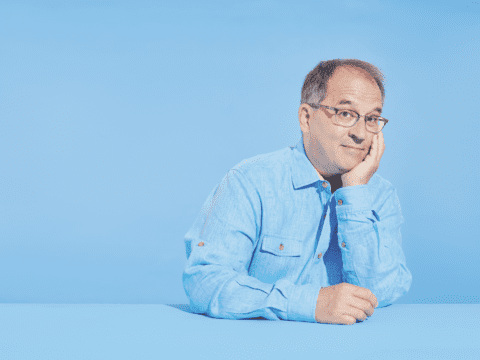
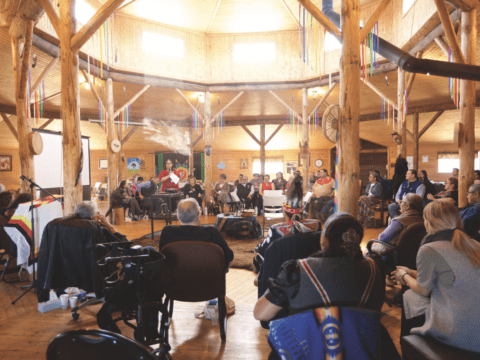
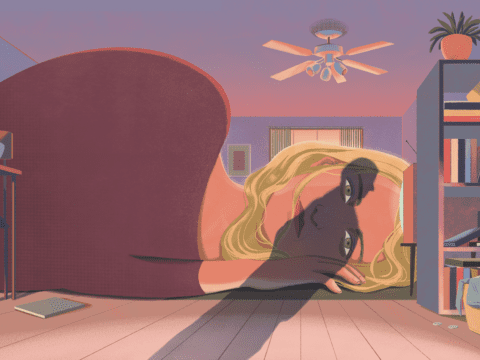

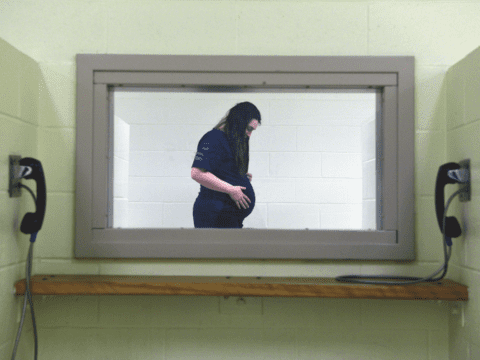
What Jason and Noah are practicing is NOT celibacy, but abstinence. This is clear in the explanation of their relationship. Those who practiced celibacy in the Bible were truly committed to a higher calling, rather than just being single, or abstinent. What this article seems to be doing is making a black and white issue, “grey”. (No matter what your stance is on homosexuality)
Eve Tushnet, also practices abstinence, not celibacy, if she is not clear on her Church’s stance, I suggest she go to the denominational website, or forums, there’s a ton of stuff on the matter, regardless of the denomination. If she’s basing her faith on the Eucharist, I also suggest she attend a denominational class to clarify her beliefs, it should stand on more than a sacrament.
Matthew Wigmore’s comment: “The majority of LGBTQ students who went to Trinity Western didn’t come out until after they graduated. A lot of them came out as celibate on campus. So what does that tell you?” – To me they lied, not only to others, but to themselves as well.
Finally, I find the matter of this article similar to offspring of mixed races, they are not accepted in either cultures. In their case, I trust that they have the full support of their parents, who hopefully thought of the consequences of their actions.
For those in this article, I truly hope they find a respectable spiritual leader that can lead them through their trials.